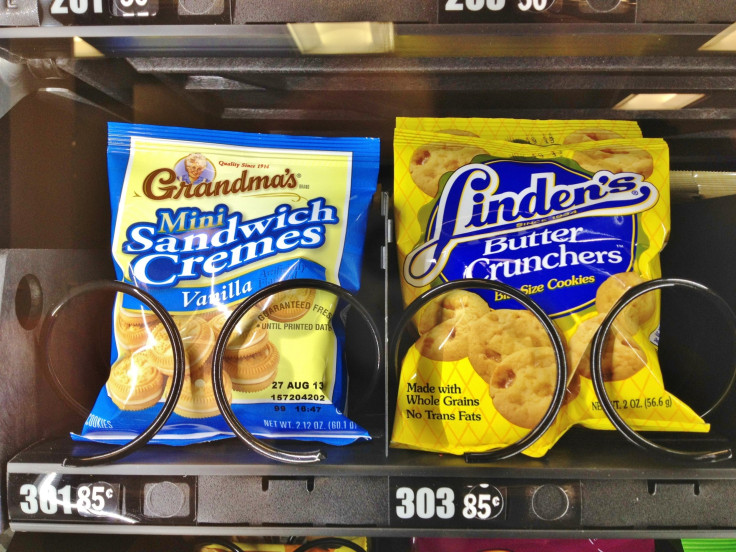Space-Age Vending Machine, Luce X2 Touch TV, Uses Facial Recognition To Deny And Dispense Snacks

The anonymity that comes with consuming food from vending machines allows us to shamelessly indulge in a chocolate bar, or a few, in a single day. But the era of vending machines and their "no judgment" capabilities will soon be limited with the Luce X2 Touch TV vending machine. This is the world’s first vending machine that uses facial recognition technology to identify and greet a user, remember a person’s preferences, and even refuse to vend products based on a variety of factors, like a shopper’s age to dietary requirements.
Rheavendors, the manufacturing company, and Dr. Malcolm Standage, of the machine’s supplier Smart Vend Solutions, said the Luce X2 could “redefine the future of the automatic retailing industry,” The Telegraph reported. “Launching the very first full production facial recognition technology represents an advancement which will bring unlimited benefits to businesses and consumers across the UK.”
The machine is able to use facial recognition with its motion sensors that automatically launch into a video greeting when a user approaches it. Then, the machine’s avatar, an Italian man in a gray suit, shows the user a personalized menu based on his or her most frequently ordered items. In addition to customizing your menu, the machine features a touch screen that can be used to display nutritional information or pass on news and notices.
The space-age device also provides you with the luxury of not having to carry spare change for products. In the meantime, users will be able to use a card to pay, while the company plans a future version that will be fitted with a proximity sensor. The sensor will be able to read payment info from a mobile phone inside the user’s pocket.
While the Luce X2 Touch TV may provide the convenience of identifying and greeting a user, remembering a person’s preferences, and even deny certain products based on a shopper’s age, medical record, dietary requirements, or purchase history, the new technology does raise some eyebrows. Tracking a consumer’s purchase history treads the waters of infringement of their buying freedoms and exposes their personal expenses in front of other people.
It’s unclear how the smart vending machine can determine demographic characteristics such as age and gender and display appropriate content, but this can call for many obstacles. For example, if a user is 30 years of age, according to Jezebel, but the machine thinks you’re 40, "And what if you really want some Cool Ranch Doritos and orange soda but the machine doesn't think that's 'appropriate content' for your demographic, as a premature 40-year-old?"
It may be an ideal choice for schools who can refuse certain products, such as cigarettes to underage students, or a gym, in which it could refuse to sell fattening snacks to members or a diet. However, complications may arise when you’re on a first date and decide to get a snack. Since the vending machines use cloud technology, all of the machines are connected and will be able to recognize your face and set its display based on your previous purchases.
David Wilson, sales director for Smart Vend Solutions, the vending machine's supplier, reassures users it’s not meant to invade anyone’s privacy. "It's not as if it's going to spy on you," he told The Telegraph. "It brings a personal aspect to shopping, rather than, 'I'll have a number 44 with two sugars.”
Not surprisingly, this concept has been introduced in the U.S. market with SAP high-tech machines. The vending machines use cloud technology and data analysis to make sure they stay stocked with your favorite drink and get repaired as soon as they break. Unlike the Luce X2, the SAP machine allows users to pay for items using either NFC payments, a credit card, cash or other mobile wallet apps, according to Tom’s Guide in March. The vending machine could be used for all kinds of products, including electronics that could serve as a gift. There is no word on where SAP’s new vending machines and which companies will be using them.
The Luce X2 debuted to industry professionals in Hertfordshire in October, but it still remains a mystery as to when the smart machine will replace the antiquated ones.
Published by Medicaldaily.com



























